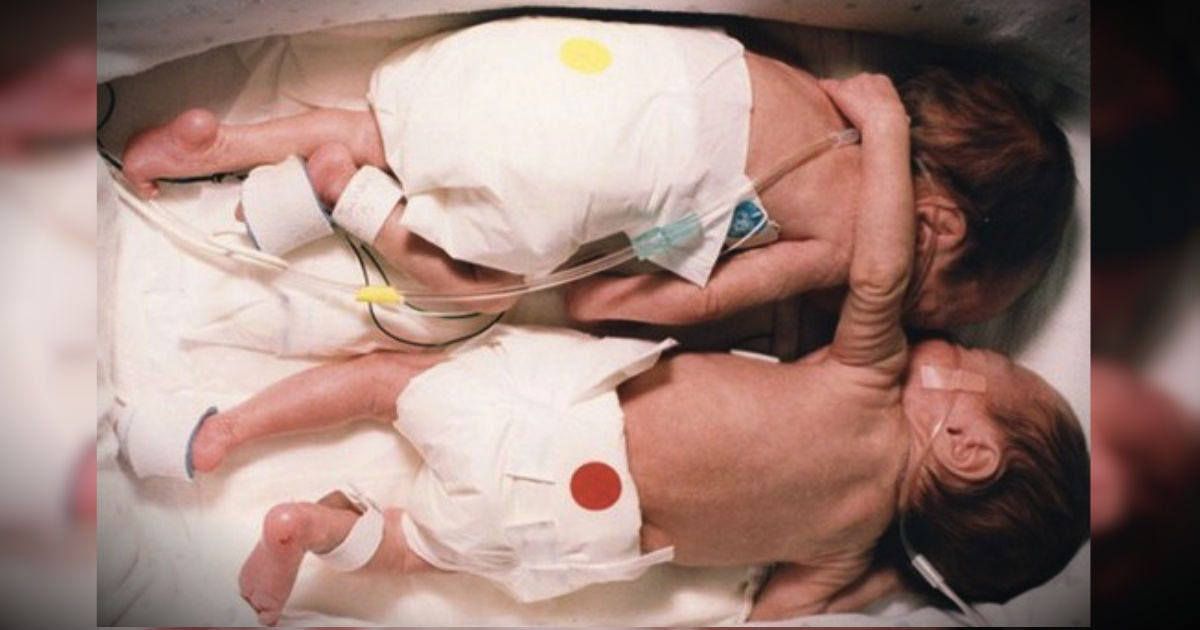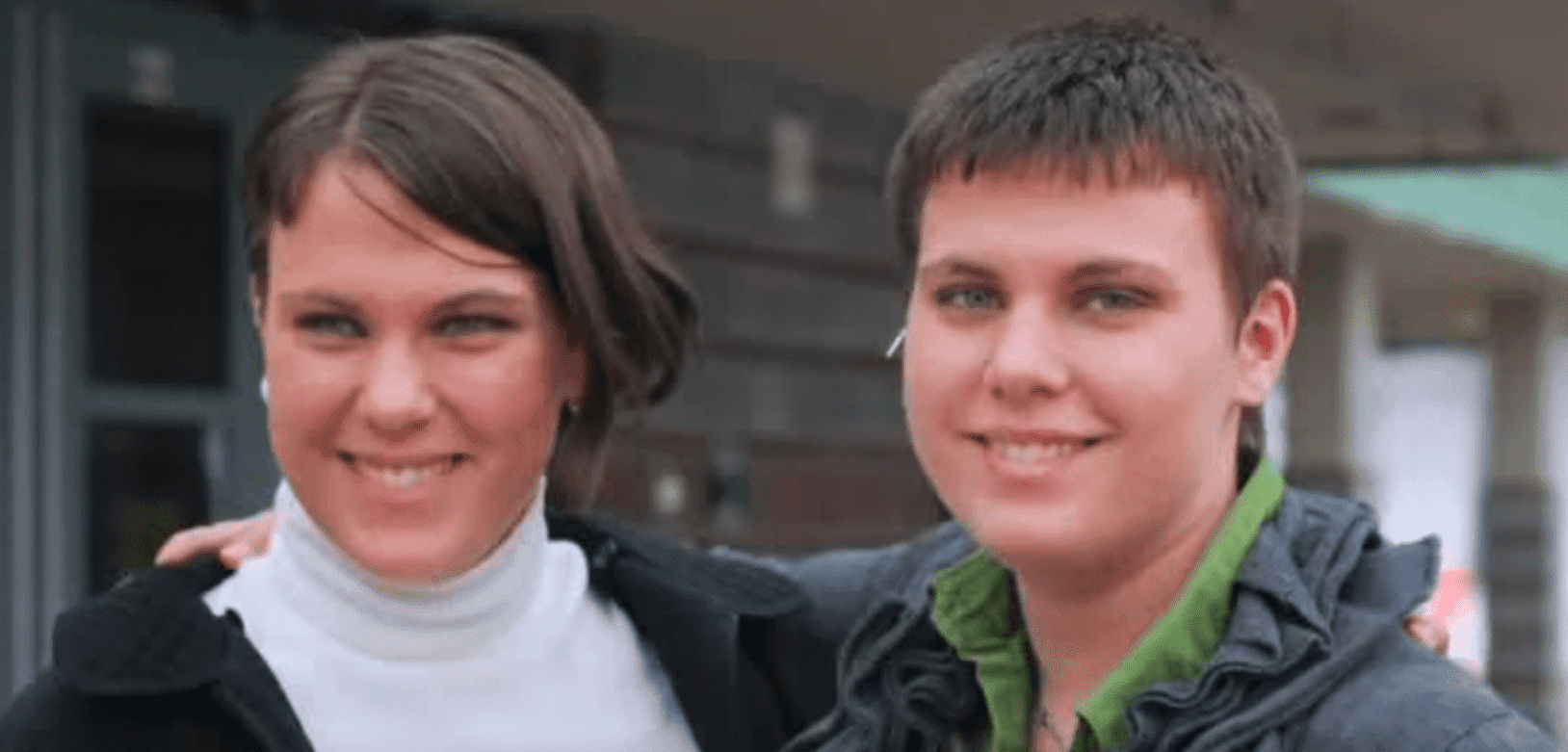I was recently reminded of the incredible story of the “rescuing hug” photo (above). To sum up the basics:
Kyrie and Brielle Jackson were born on October 17, 1995 — 12 weeks ahead of their due date. Kyrie weighed only 2 pounds, 3 ounces. Brielle was even smaller and far more frail.
As per hospital policy, they were placed in separate incubators to reduce the risk of infection. Kyrie slowly began to thrive but Brielle did not. She experienced heart and breathing problems and was put in critical condition on November 12 — seemingly near death.
Nurse Gayle Kasparian decided to try something unheard of at the time. She got the parents’ permission to place the twins in the same bed. Here’s what happened next:
No sooner had the nurse closed the incubator door, than the fragile Brielle snuggled up to Kyrie and began to calm down. Within minutes, her blood-oxygen readings improved. Kyrie wrapped her left arm around her smaller sister. Brielle’s heart rate stabilized and her temperature rose to normal.
Long story short: The blessed power of human touch and connection prevailed. The twins survived and are living full healthy lives.
We all need and crave reconnection — now more than ever.
Whenever you’re touched by someone you trust, this welcome physical contact activates pressure receptors below the skin — thus setting off an incredible, healing process. Your Pacinian corpuscles send a message to your vagus nerve which, in turn, slows down your nervous system by:
- Lowering your blood pressure and heart rate
- Decreasing the level of stress hormones like cortisol
The more you hug, the more hands you hold, the more snuggles you enjoy, the less of a threat cortisol plays in your body. Under normal circumstances, cortisol serves as your body’s alarm — ever ready to launch you into fight-or-flight mode when real or perceived danger is present.
Thanks to this stress hormone, you will temporarily experience a burst of energy, enhanced memory, increased immunity, and a higher pain threshold. All this is obviously a good thing… except in instances of chronic stress.
Chronic stress = chronic cortisol. The negative outcomes of this equation include dangerously impaired cognitive performance and troubling physical symptoms like:
- Decreased muscle tissue and bone density
- Higher blood pressure
- Suppressed thyroid function
- Compromised immune functions
- Blood sugar imbalances
- Increased abdominal fat which may lead to heart attacks, strokes, and more
Trusted human touch counters all of the above while simultaneously increasing the presence of what has been labeled the “cuddle hormone”: a neuropeptide called oxytocin. It promotes powerful feelings of bonding. From this foundation grows trust, compassion, positive thinking, and an optimistic outlook.
Good news: Self-touch may activate some of the same soothing processes as being touched by others. Plus, if you’re fortunate to share your home with an animal companion, there are many benefits to be gained from cuddling with a dog or cat (for everyone involved).
Beyond self-touch and pets, you can try replicating the positive effects of physical touch by focusing on your other senses, e.g.
- The Value of Keepsakes: Any item that evokes the presence of a loved one should be touched and/or placed in your daily line of sight.
- Memory Visualization: If you’re without any keepsakes on hand, you may choose to rely on visualization. Get in touch with a positive memory with a loved one, meditate upon it, and bring all your senses to a state of awareness and gratitude.
- Sensory Self-Care: Examples include taking long baths or showers, starting a stretching regimen, self-massage, and wearing comfortable clothing. Also, make it a daily practice to actively discover and appreciate the sights, sounds, and smells within your immediate surroundings.
- Weighted Blanket: I can personally vouch for the calming effect of using my 15-pound blanket. The added pressure has been found to activate serotonin and reduce cortisol. On a more abstract but delightful level, it sorta feels like you’re getting a gentle hug all night long.
Above is the most recent photo I could find of Brielle and Kyrie Jackson (in their 20s).















